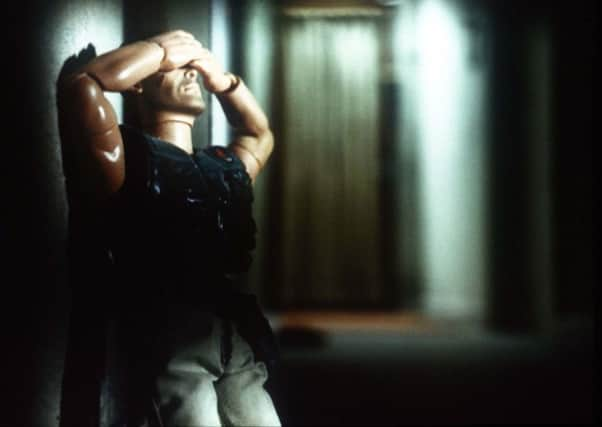Full stop call on child abuse: The week that was: March 14 to 20, 1999.


The charity said most child cruelty was preventable, but first of all society needed to open its eyes to the huge scale of the problem.
The first major industrial action in the mining industry since the year-long strike in 1984 was called off just 24 hours before it was due to start. Pitmen at nine collieries run by RJB Mining had been due to walk out in a pay dispute. Both sides said common sense had prevailed after three hours of talks between management and unions in Doncaster.
Advertisement
Hide AdAdvertisement
Hide AdThe settlement meant miners would now receive a greater proportion of their pay at standard rates rather than as bonus and incentive earnings.
A renegade loyalist terror group claimed responsibility for the murder of a leading solicitor in a car bomb attack in Northern Ireland. The Red Hand Defenders admitted the crime in a call to the BBC in Belfast, following the blast which killed 40-year-old human rights lawyer Rosemary Nelson.
Northern Ireland’s first minister David Trimble, in Washington attempting to kick start the peace process, said he was “horrified” by the killing.
Ramblers’ leaders called on landowners to bury the hatchet and work with them over new ‘right to roam’ laws.
Advertisement
Hide AdAdvertisement
Hide AdDavid Beskine, campaigns director of the Ramblers’ Association, said he wanted an end to acrimony between walkers and landowners so that they could jointly contribute to the shaping of the legislation.
Environment Minister Michael Meacher had surprised both sides by bringing forward the introduction of the new laws. It had been expected that he would simply call for more voluntary deals between ramblers and landowners. Furious landowners said the enormous cost of opening up vast areas of private land to walkers would have to be borne by them and the taxpayer.
With scares in the recent past over salmonella in eggs, then the BSE crisis in the beef industry, the British public could be forgiven for feeling confused about what to put in the shopping basket.
Vegetarians, who had been largely unaffected by previous scares, were now being told by a specialist laboratory in York that soya, together with a host of vegetables, pulses, beans and grains were a potential health risk.
Advertisement
Hide AdAdvertisement
Hide AdThe York Nutritional Laboratory said its ground-breaking research had found that soya, often eaten as a substitute for dairy and meat products, was among the top 10 foods associated with causing chronic illnesses such as irritable bowel syndrome, migraines, lethargy and depression.
East Yorkshire was in danger of losing its unique way with words to expressions more usually heard on TV’s EastEnders, according to a Hull-born expert.
Dr Ann Williams studied the speech of schoolchildren in North Hull and found a high incidence of “bruvver”, “muvver” and “uvver” (brother, mother, other), as well as “free” (three), “bo’le” (bottle) and “I fink” (I think).
She said features of London pronunciation were spreading “like wildfire”, and put it down to the capital’s strength as the centre of ‘cool’.
Advertisement
Hide AdAdvertisement
Hide AdAll was not yet lost, though. ‘Hullisms’, with their flat vowels, were still prevalent, including “There’s ner snur on the rurd” (there’s no snow on the road), “the Perp” (the Pope), and “summatup? (Is anything wrong?).